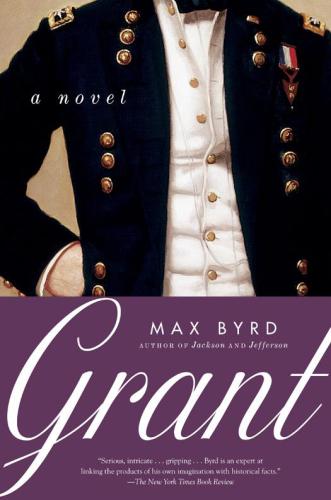
Grant
A Novel
- اطلاعات
- نقد و بررسی
- دیدگاه کاربران
نقد و بررسی

July 31, 2000
The third installment in Byrd's series of political/historical novels (Jefferson; Jackson) is informative and entertaining historical fiction. Although it's touted as similar to Gore Vidal's sensational American chronicle series, Byrd's literary mentor is more like Henry James, as the book features dense prose, a mannerly plot and psychologically real characterizations. A fictional character, journalist and author Nicholas Trist, is the center of this loosely constructed churn through the politics and society of the 1880s. Trist is a one-armed and embittered veteran of Cold Harbor who has spent his years since the Civil War in self-imposed exile. Sent home to America by a French magazine to cover Ulysses S. Grant's bid for an unprecedented third term in 1879, Trist is initially bulldozed by Sen. Don Cameron, Grant's campaign manager, who vows to give the reporter access to Grant only if he'll write laudatory accounts. Elizabeth, Cameron's young and lovely wife, instantly attracts Trist's interest, and the first half of the novel is paced by their parries as the pair seek the courage to consummate their passion. A storm of Washington politics swirls in the background, and the cast of characters is fleshed out by credible portraits of Samuel Clemens, Sylvanus Cadwaller, William T. Sherman, Clover Adams and, of course, Grant himself. In the second half of the book, the action jumps ahead to the next election year and traces Grant's decline into bankruptcy and fatal disease as he frantically tries to complete his memoirs in order to save his family from penury. Trist and Elizabeth get together, but here Byrd makes a tactical mistake (the same one Vidal commits in Empire), by trying to shift the focus to Henry Adams--who, as a character, remains a caricature of a conceited and often cruel cynic. Byrd's research and literary knowledge are impressive, but while his re-creation of period detail, including product placement (Ivory Soap, E.C. Booze whiskey and Heinz Pickles), is excellent, there are a few anachronisms. Even so, this is a fascinating read for any serious student of period when modern politics and society were being mapped out of the smoky shadows of a devastating war. Agent, Virginia Barber.




دیدگاه کاربران